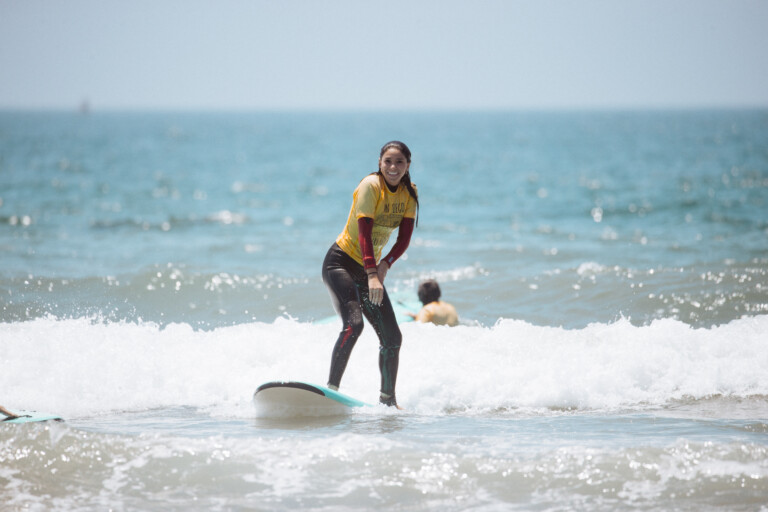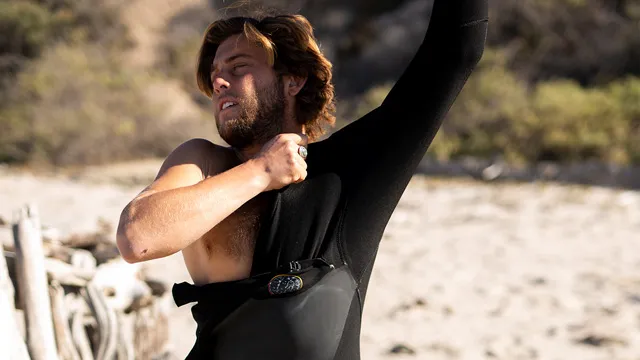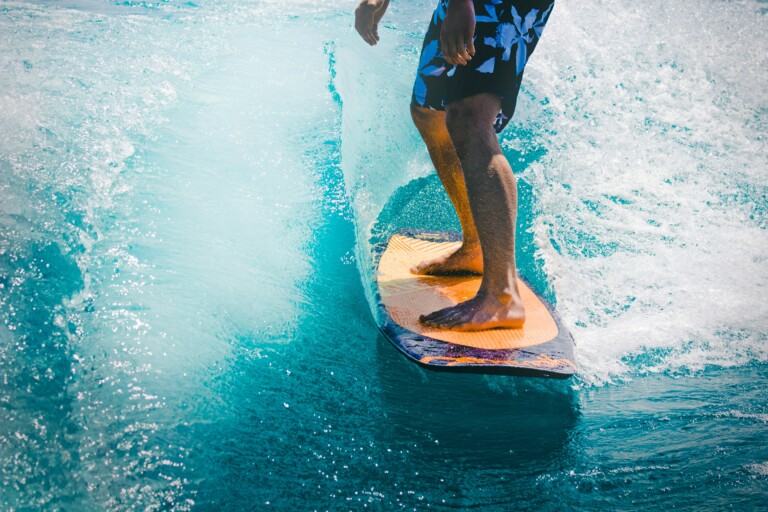Taking care of your body when you’re not surfing is crucial to ensure that you stay fit, healthy, and ready for your next session. Here are some tips on how to maintain your overall well-being during the times when you’re not in the water:
1. Stay Active:
- Engage in complementary exercises to enhance your surfing performance. Activities like swimming, running, yoga, and strength training can improve your stamina, flexibility, and overall fitness.
2. Stretch Regularly:
- Incorporate stretching into your routine to improve flexibility and prevent muscle stiffness. Focus on areas such as your shoulders, back, hips, and legs.
3. Strength Training:
- Build core strength and stability to enhance your balance on the board. Include exercises like planks, squats, lunges, and exercises targeting the muscles used in surfing.
4. Cardiovascular Exercise:
- Maintain good cardiovascular health through activities like cycling, running, or swimming. Cardiovascular fitness is beneficial for endurance in the water.
5. Rest and Recovery:
- Allow your body to recover after intense surfing sessions. Ensure you get enough sleep and consider incorporating rest days into your weekly schedule to prevent burnout and reduce the risk of injuries.
6. Hydrate and Eat Well:
- Stay hydrated to support overall health and muscle function. Consume a balanced diet rich in lean proteins, fruits, vegetables, and whole grains to provide essential nutrients for energy and recovery.
7. Manage Stress:
- Practice stress-reducing activities such as meditation, deep breathing, or mindfulness. Managing stress is essential for mental well-being and can positively impact your physical health.
8. Maintain Good Posture:
- Be mindful of your posture, especially if you spend a lot of time sitting. Poor posture can lead to imbalances and affect your surfing performance.
9. Cross-Train:
- Engage in activities that challenge different muscle groups and movement patterns. This can prevent overuse injuries and improve overall athleticism.
10. Get Regular Check-ups:
- Schedule regular check-ups with healthcare professionals to monitor your overall health and address any concerns promptly.
11. Stay Flexible:
- Maintain joint flexibility through stretching and mobility exercises. This is important for preventing injuries and improving your ability to move on the board.
12. Listen to Your Body:
- Pay attention to any signs of fatigue, discomfort, or pain. If you experience persistent issues, consult with a healthcare professional or a sports physiotherapist.
13. Stay Informed:
- Keep yourself informed about advancements in surf-related fitness and health. New techniques and exercises may emerge that can benefit your overall well-being and surfing performance.
14. Enjoy Other Hobbies:
- Explore other activities and hobbies that bring you joy and relaxation. This can contribute to your overall happiness and mental well-being.
Remember that a holistic approach to health and fitness contributes to better surfing performance. By taking care of your body on and off the waves, you can enjoy a sustainable and fulfilling surfing lifestyle.











